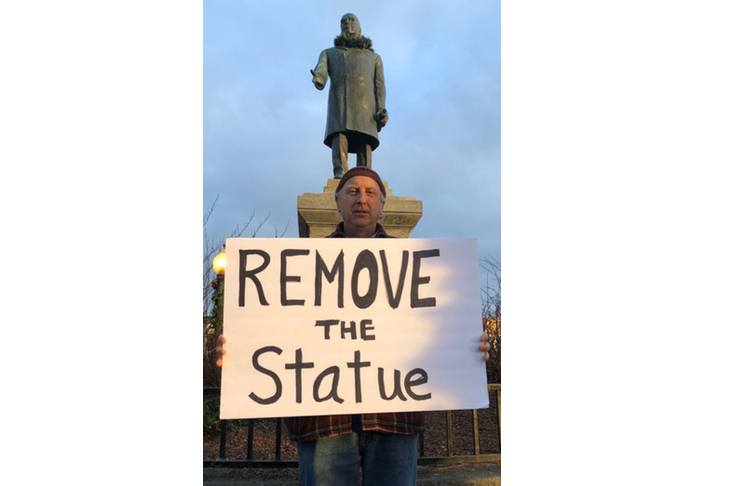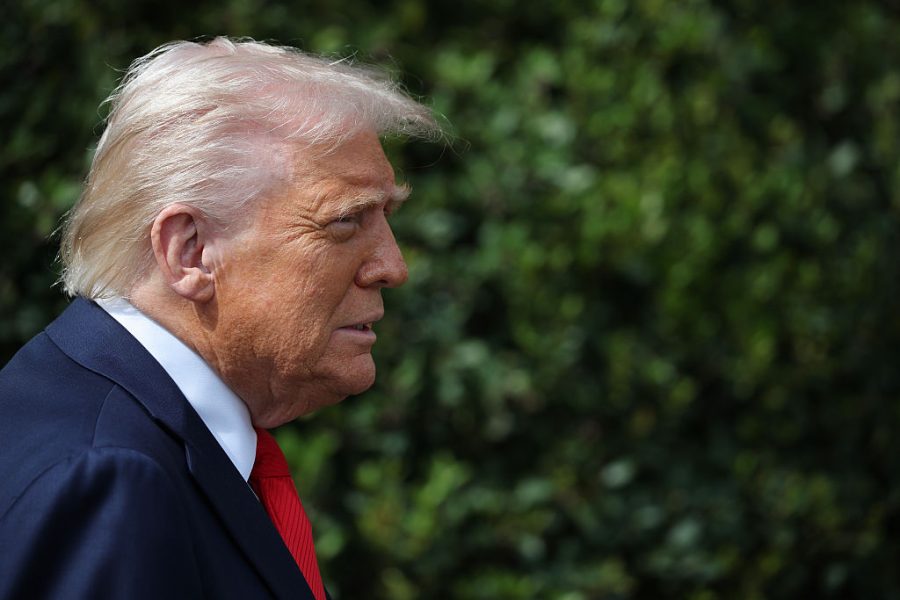Ah, this will be about empire. So I thought when I saw that the small city of Arcata, California, has voted to remove the statue on their town plaza of President William McKinley.
The United States had never possessed overseas colonies before McKinley. Every territory we acquired, we eventually brought into the republic with full statehood. That all changed in 1898 with the Spanish-American War, at the end of which America found herself in possession of Puerto Rico, Guam, and the Philippines—islands about which McKinley admitted “I could not locate within 2,000 miles.” He also annexed Hawaii and established a protectorate over Cuba.
The tipping point between republic and empire is a momentous one in the life of a nation, and for America the tipping point came with McKinley.
To my astonishment, the California statue-topplers hardly mention any of this in their petitions. Instead their grievances are of the most generic sort, the usual lines about Native American genocide and white supremacy. The statue sits on “Wiyot land,” one protester said. Another performed a traditional song of the Pomo tribe at a protest on the city plaza the day of the council vote, after which the protesters marched to city hall where they shouted down the lone citizen who turned up to speak in McKinley’s defense.
Another Arcata landmark has already been removed on the city council’s orders. Yesterday [Wednesday] workers tore down a plaque marking the Jacoby Storehouse, a few blocks from the McKinley statue. Its offense was to bear the sentence “From 1858 through 1864 it served periodically as a refuge in time of Indian troubles.”
The phrase “Indian troubles,” in particular, was deemed to be racist. “I think the plaque is clearly totally racist and the words ‘Indian troubles’ is really just code for genocide,” said councilman Michael Winkler.
Leaving aside whether the councilman can possibly think of a phrase more neutral than “Indian troubles,” consider the dates on the plaque: 1858 to 1864. President McKinley was elected in 1896. Whatever rampage of genocidal violence attended the settlement of the Pacific Northwest, in Councilman Winkler’s version of history, it was over by the time McKinley was inaugurated.
So what does McKinley have to do with Native American dispossession? One of the protesters seems to have told a local reporter than McKinley “was responsible for the passage of the Dawes Act.” The reporter would not have repeated this falsehood if he had checked his dates. (The Dawes Act was passed in 1887.)
The truth is that McKinley contributed very little to federal Indian policy. It would be one thing to tear down his statue because he was the man who turned America from a republic into an empire, but over continental expansion, which was long over by the time he ran for president? The only thing worse than iconoclasm is iconoclasm for the wrong reasons.
The protesters might as well have come into this agitation with their grievances already scripted, with no regard for which nineteenth-century white male happened to be cast in bronze on their town plaza. I rather suspect they did.

























